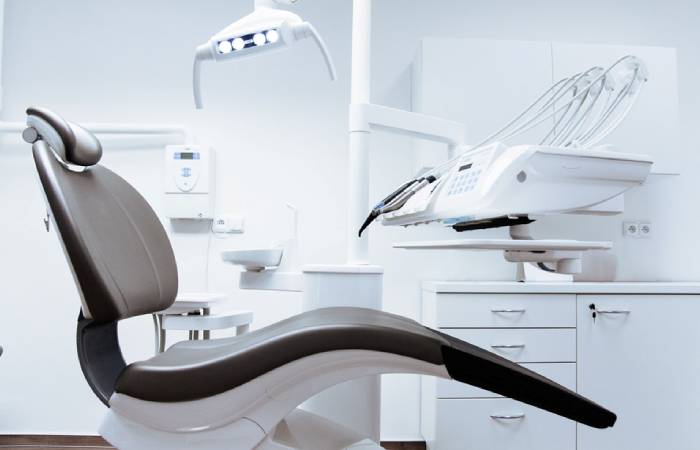Around the world, diets vary dramatically based on culture, geography, and tradition. While these culinary differences are a source of richness and diversity, they can also have a significant impact on oral health.
From bad breath to tooth decayThe foods we eat play a crucial role in the condition of our teeth and gums. Let’s explore how regional diets, particularly in Hong Kong, contribute to oral health issues—and how they compare to Western diets.
Hong Kong’s Diet: A Flavorful Culinary Tradition with Oral Health Implications
Hong Kong is renowned for its vibrant food culture, blending Cantonese cuisine with international influences.
From dim sum and roasted meats to seafood and sweet desserts, the local diet is rich in flavor—and, unfortunately, in factors that can contribute to oral health problems like bad breath and tooth decay.
#1. High Sugar Consumption
Hong Kong’s love for sweet treats, such as egg tarts, pineapple buns, and sugary milk tea, can lead to plaque buildup and cavities. When sugar interacts with oral bacteria, it produces acid that erodes tooth enamel, increasing the risk of tooth decay.
#2. Sticky and Starchy Foods
Many traditional dishes, like sticky rice dumplings and steamed buns, cling to teeth, providing a breeding ground for bacteria. These food particles can linger in the mouth, contributing to bad breath and gum disease if not properly cleaned.
#3. Strong Flavors and Aromatics
Garlic, onions, and fermented sauces are staples in Hong Kong cuisine. While delicious, these ingredients release sulfur compounds as they break down, leading to mouth odor. Without proper oral hygiene, the smell can persist long after the meal is over.
#4. Frequent Snacking
The culture of “yum cha” (drinking tea) often involves small, frequent meals throughout the day. This constant exposure to food can disrupt the mouth’s natural pH balance, making it harder for saliva to neutralize acids and wash away bacteria.

How Diet Affects Western Oral Hygiene
In contrast, Western diets—particularly in countries like the United States and the United Kingdom—have their own set of oral health challenges. The high consumption of processed foods, sugary snacks, and acidic beverages (like soda and energy drinks) is a major contributor to tooth decay and gum disease.
Additionally, the prevalence of fast food and convenience meals often means less emphasis on fresh, crunchy fruits and vegetables, which can help naturally clean teeth and stimulate saliva production.
For example, the typical Western breakfast of sugary cereals or pastries, paired with orange juice (high in acid), can create a perfect storm for enamel erosion and bad breath. Without proper brushing and flossing, these dietary habits can lead to plaque buildup, cavities, and even periodontal disease.
The Link Between Diet and Bad Breath
Regardless of region, diet plays a significant role in bad breath. In Hong Kong, the combination of strong flavors, frequent snacking, and sugary foods can exacerbate mouth odor.
In Western cultures, processed foods and sugary drinks can have a similar effect. When food particles linger in the mouth, they feed oral bacteria, which release foul-smelling sulfur compounds.
Poor oral hygiene only compounds the problem, allowing bacteria to thrive and produce even more odor.
Preventing Oral Health Issues Through Diet and Hygiene
The good news is that many oral health problems can be prevented with mindful eating and proper care. Here are some tips for maintaining a healthy smile, no matter where you live:
- Limit Sugary and Sticky Foods: Reduce your intake of sugary snacks and beverages, and opt for fresh fruits and vegetables instead. Crunchy foods like apples and carrots can help clean teeth naturally.
- Stay Hydrated: Drinking water throughout the day helps wash away food particles and bacteria, reducing the risk of bad breath and dry mouth.
- Practice Good Oral Hygiene: Brush twice a day with a high-quality toothbrush like Oral-B, floss daily, and use mouthwash to kill bacteria and freshen breath. For children, consider the Oral-B Kids electric toothbrush to make brushing fun and effective.
- Clean Your Tongue: Use a tongue scraper or your toothbrush to remove tongue bacteria, a major contributor to mouth odor.
- Visit Your Dentist Regularly: Routine check-ups can help catch issues like cavities or gum disease early, before they escalate into more serious problems.
A Global Perspective on Oral Health
From the bustling streets of Hong Kong to the fast-paced lifestyle of the West, diet plays a pivotal role in shaping oral health.
While regional cuisines offer unique flavors and experiences, they also come with their own set of challenges.
By understanding these connections and taking proactive steps to care for our teeth and gums, we can enjoy the best of both worlds: delicious food and a healthy smile.
So, whether you’re savoring dim sum in Hong Kong or indulging in a burger in the U.S., remember that your diet impacts your oral health. With the right habits and tools—like Oral-B toothbrushes—you can keep bad breath, cavities, and gum disease at bay, no matter where you are.
